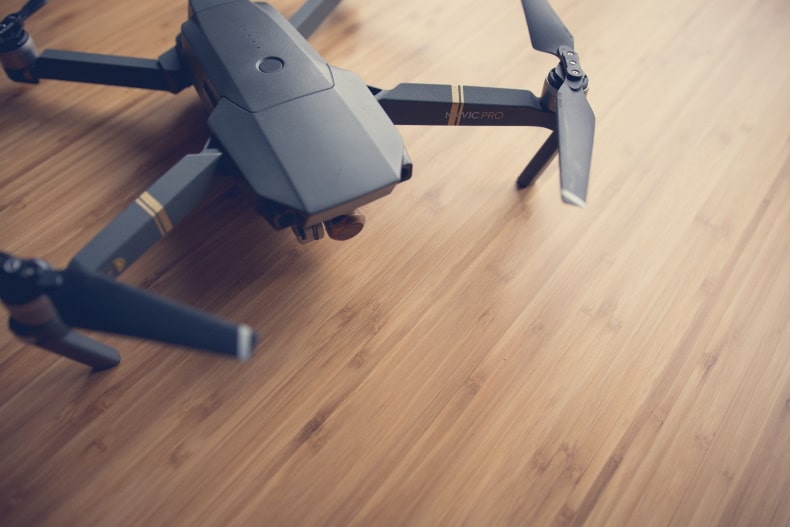- DUI
- Criminal Defense
- Florida DUI
- Traffic Offenses
- Drug Charges
- Marijuana Charges
- Violent Crimes
- Domestic Violence
- Temporary Injunctions
- Weapons Charges
- Theft Crimes
- White Collar Crime
- Juvenile Offenses
- Sex Crimes
- Violation of Probation
- Early Termination of Probation
- Seal or Expunge Criminal Record
- Criminal Appeals
- US Federal Offenses
- Misdemeanor Charges
- Felony Charges
- Co-Defendant Cases
- College Student Defense
- College Student Hearings
- FSU Students
- FAMU Students
- Florida Panhandle Arrests
- Extradition to Florida
- Bench Warrants / Warrants
- Emergency Bond Hearings
- Gambling Charges
- Drone Arrests
- Marsy’s Law
- UAS Infractions
- Introduction of Contraband
- Lying to Police
- Locations
- Case Results
- Our Firm
- Media
- Resources
- Blog
- Contact Us
I Just Bought a Drone, What’s Next?
October 19, 2017 Don Pumphrey, Jr. Criminal Defense, Drone Law Drone law Social Share
Congratulations! The world of drones is exciting, but the legal requirements to use them can be rough to navigate.
First, you want to get that thing off the ground! Depending on the model there may be different safety requirements, make sure you read the owner’s manual and understand how to avoid any safety issues. One optional precaution is to purchase some kind of protection. DJI offers “Care Refresh” which is a great way to insure one of their drones for a year against any crashes and damage.[1] Another unreviewed (but often recommended) option is to purchase a Personal Articles Policy (PAP) from an insurance agent.[2] Once acquainted with your drone, you are able to go ahead and fly it!
The second step is to make sure you are complying with FAA regulations. If your drone is smaller than .55 pounds, its considered a toy and you can stop reading now. If your drone is larger, it is considered an Unmanned Aerial System (UAS), and subject to FAA regulations. If it is larger than 55 pounds, then you have a whole set of separate rules which can be found here. Most pilots are flying drones between .55 and 55 pounds, this is the designation of a small UAS (sUAS). If you are performing this first flight for any kind of business purpose, you are going to have to comply with a different set of rules as well. This only applies to an individual flight, if you’re not going to sell any pictures you’re taking, or survey anything, you’re probably fine, and that’s going to be considered a “hobby” flight. If you are deriving ANY money or compensation out of the flight, stop reading now and consult that guide here. If you have any question as to whether your flight qualifies as a hobby flight or if your drone qualifies as an sUAS, the best option is to contact a law firm such as ours, qualified in drone law to assist you.
Still with us? You may have heard about an FAA registration requirement. It costs $5 and it is highly recommended. Technically this requirement has been struck down by a federal court, you can read the specifics of that legal battle here. As the article explains, registration is still a good choice, and can be done here. If choosing not to register, you MUST follow the following guidelines (but you always should):
- strict hobby or recreational use (don’t sell those photos later)
- following all rules of a community-based set of safety guidelines promulgated by a nationwide community-based organization (the Academy of Model Aeronautics is currently the only qualifier)
- operation does not interfere with manned aircraft
Regardless of whether you are registered, the FAA mandates compliance with the following:
- Staying at or below 400 feet above the pilot
- Compliance with all airspace requirements and restrictions
- Avoid obstacles
- Keep sUAS within line of sight
- Never fly near aircraft, especially near airports
- Never fly over groups of people
- Never fly over stadiums or sports events
- Never fly near emergency response efforts such as fires
- Never fly under the influence of drugs or alcohol
- If within 5 miles of an airport, you must provide the airport operator and the airport air traffic control tower (when an air traffic facility is located at the airport) with prior notice of the operation (this is not permission, but simply letting them know how, when and where you will be flying within that radius.[3]
There are a few tools to assist with this. The FAA has released an app called B4UFLY which gives you a lot of this information, and alerts users when near an airport. A third party website and app provides most of this assistance as well, it’s called UAVForecast. UAV Forecast also gives you geomagnetic distortion, precipitation chance, and how much elevation will mask your GPS signal.
The final step is of course to have fun and enjoy your drone, but before you get there you need to make sure you’re in compliance with your state, and local laws regarding sUAS use. We will summarize Florida laws as well as Tallahassee law separately, but if you live somewhere else make sure to find a criminal defense attorney who is versed in drone law to assist you if you have any questions.
Our attorneys are experienced in Florida law, and can answer questions on how to safely fly drones in any other state. If you have any issues and you’re arrested or cited by law enforcement then you need an attorney who will work hard to defend your rights. Call our office any time at 850/681-7777 to set a free consultation.
(Note: We have been contacted by readers lately asking for clarification on the registration requirement. The registration requirement is now MANDATORY for all UAS operators, both hobby and commercial. For some background on why there is a question, check out the Taylor decision from this summer, which ruled that the FAA cannot regulate model aircraft at all. On December 12, 2017, the National Defense Authorization Act for Fiscal Year 2018 became law*. This bill reinstated the drone/UAS registration requirement that was struck down in Taylor when flying as a model aircraft. Pumphrey Law has always recommended registration, believing it is better safe than sorry. Now hobbyists can be directly fined by the FAA for failing to register. The registration can be found here. More information regarding this change can be found here.
* Sect. 1092. COLLABORATION BETWEEN FEDERAL AVIATION ADMINISTRATION AND DEPARTMENT OF DEFENSE ON UNMANNED AIRCRAFT SYSTEMS.
“(d) Restoration Of Rules For Registration And Marking Of Unmanned Aircraft.—The rules adopted by the Administrator of the Federal Aviation Administration in the matter of registration and marking requirements for small unmanned aircraft (FAA-2015-7396; published on December 16, 2015) that were vacated by the United States Court of Appeals for the District of Columbia Circuit in Taylor v. Huerta (No. 15-1495; decided on May 19, 2017) shall be restored to effect on the date of enactment of this Act.”)
Article Written By
J Brent Marshall, Florida State University College of Law and Pumphrey Law, Law Clerk
[1] DJI Care Refresh, http://www.dji.com/service/djicare-refresh.
[2] State Farm, Protect Your Valuables with a Personal Articles Policy, https://www.statefarm.com/insurance/home-and-property/personal-articles-policy (State Farm is widely cited one provider which will provide PAP insurance for drones, make sure to research thoroughly PAP policies in your state, some states will ping a claim against your homeowner’s insurance – or future homeowner insurance eligibility – some will not).
[3] FAA, Fly for Fun, https://www.faa.gov/uas/recreational_fliers/












